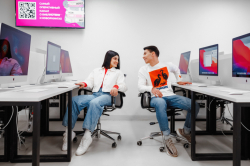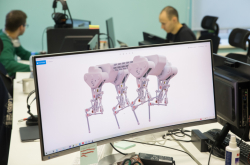Contents:
Overview
A dual Master’s-PhD program is a new educational format at ITMO University that promotes fast and efficient training of top-tier specialists and future scientists. The track is designed for aspiring researchers determined to graduate early to pursue their career in science. Within this track, current Master’s students can select a topic for their PhD thesis and a supervisor, as well as take some PhD courses and receive credits for them. Once they get into a PhD program of their choice, they will be able to carry on with their research project without having to spend time figuring out their research objectives and getting to know the scientific team.
A Master’s and PhD in four years. Typically, students complete a Master’s program in two years, whereas a PhD can take up to four years, depending on the specialization. With the new track, the timeframe can be reduced to four years overall: two years for Master’s and two years for PhD (with an early thesis defense).
To complete two degrees in less time, students will need to take both core educational modules and some PhD courses necessary for their further examination, such as English, history, and philosophy of science.
Beginning in their first year, students and their supervisors will start to build their research plan, formulate hypotheses, and choose methodology for the study. By the end of the first year, they'll be ready to present the first draft of their paper, and by the end of the second, they will have at least one publication/thesis abstract. In the meantime, students will also need to undergo a teaching and research internship during which they will discuss the results of their study with their supervisor and other scientists.
No PhD entry exams. As a rule, prospective students need to pass two entrance exams – English and a discipline in their field – to enroll into a PhD program. However, students of the dual program can pre-take PhD exams while still doing their Master’s and, if they wish, transfer those credits when applying for a program.
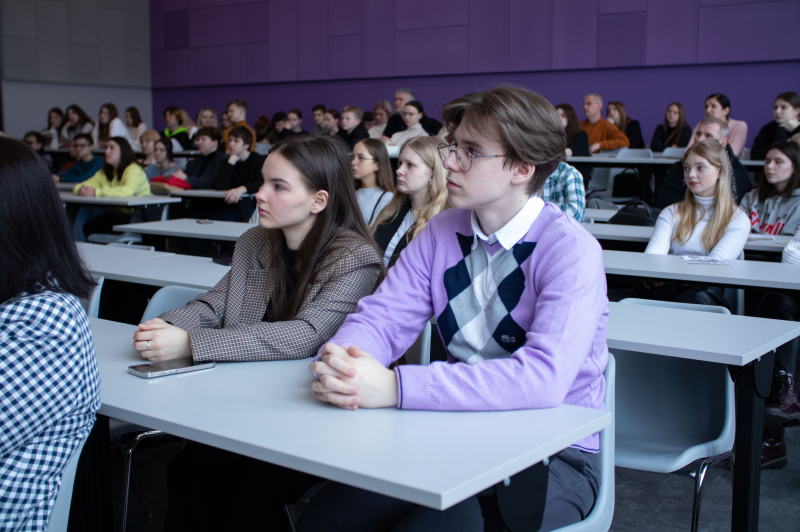
ITMO Open Days. Photo by Amina Aleeva for ITMO.NEWS
Educational programs
In 2023, seven Master’s programs offer a combined track at ITMO University.
Physics
Physics of Radio-Frequency Technologies. The program includes five specializations to choose from:
- Digital Communication Antennas and Positioning Systems;
- Radio-Frequency MRI Systems;
- Millimeter and Terahertz Technologies and Systems;
- Analog and Digital High-Frequency Electronics;
- Radiophysics of Metamaterials and Metasurfaces.
In this program, students will learn to carry out calculations, model, and create prototypes of antennas and digital/analog high-frequency devices, which will prove useful when developing next-gen antennas and 5G/6G devices, wireless power transfer systems, MRI (magnetic resonance imaging) technologies, global navigation satellite systems, and RFID (Radio Frequency Identification) devices.
Graduates of the program can either start working as engineers, developers, or researchers at R&D departments of major companies, such as Huawei or Yadro, and solve problems in the fields of modern radio data transmission, communications, medical diagnostics, or navigation.
Read also:
New Generation of Wireless Chargers Developed at ITMO: Here’s How It Can Change Your Life
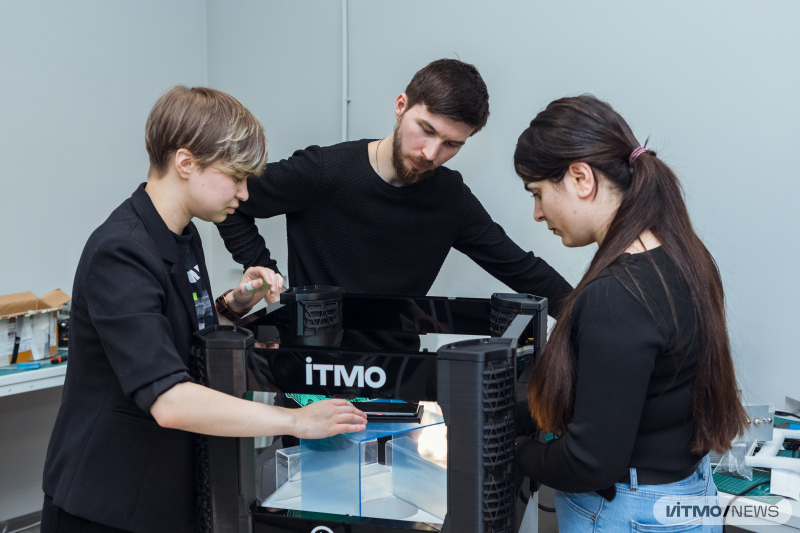
Members of the development team next to their wireless charger prototype. Photo by Dmitry Grigoryev / ITMO.NEWS
Photonics and Spintronics. Students of this program will gain expertise in condensed matter physics, optics, photonics, and spintronics within one of the three specializations:
- Theoretical Photonics;
- Experimental Photonics;
- Spintronics.
After graduation, future specialists will be able to develop novel nanostructures or optical and spintronic devices at the Ioffe Institute or companies like Information Optics, Infrared Photodiodes, and others.
Advanced Quantum and Nanophotonic Systems. Four specializations are available within the program:
- Nanophotonics;
- Quantum Materials;
- Hybrid Materials;
- Computer Modeling of Quantum and Nanophotonic Systems;
Depending on the specialization of their choice, students will learn how to model quantum and nanophotonic systems and apply them to create quantum computers, multipurpose metamaterials and nanostructures, as well as biosensors and targeted drug delivery methods. After receiving their degrees, graduates can conduct research as part of Russian or international teams or become engineers at Huawei, Samsung, BIOCAD, Rosatom, etc.
Read also:
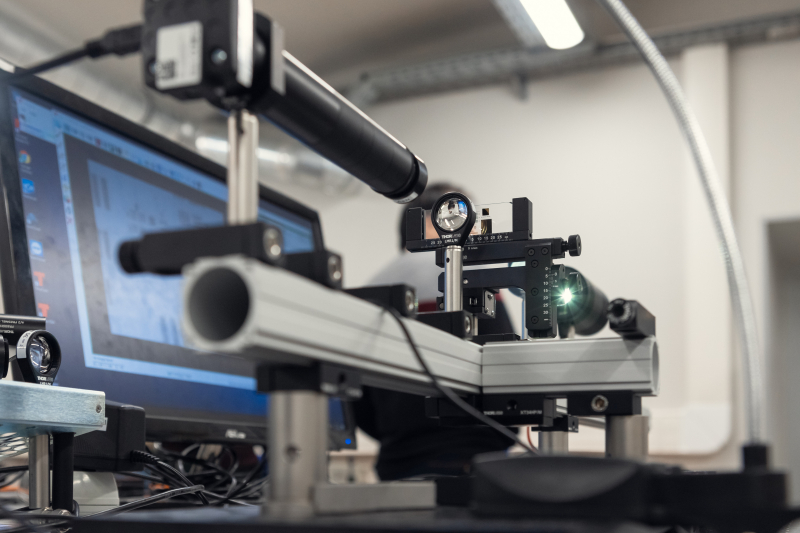
A laboratory at ITMO's Faculty of Physics. Photo by Dmitry Grigoryev / ITMO.NEWS
Students with a degree in advanced quantum and nanophotonic systems can pursue their PhDs in one of the following fields:
- Devices and Methods of Experimental Physics;
- Optics;
- Theoretical Physics;
- Condensed State Physics;
- Radio Physics;
- Antennas, Microwave Devices, and RF Technologies.
Applied Photonics. The one and thus far the only Master’s program in Russia that combines four specializations:
- Materials of Photonics;
- Applied Art Photonics;
- Quantum Communications;
- Ultrafast Photonics.
During their studies, applied photonics majors will explore the fundamentals of quantum technologies, optical methods of data transmission, storage, and processing, methods of artwork control and visualization, optical materials, as well as femtosecond and terahertz technologies. Graduates can apply for positions of researchers and engineers at Russian Railways, Elektropribor, Kometa, Quanttelecom LLC, and other companies. Or opt to complete their PhD in one of the following fields:
- Optics;
- Theoretical Physics;
- Photonics;
- Optical and Opto-Electronic Devices and Complexes.
Read also:
First in Russia: ITMO to Launch Interdisciplinary Program in Photonics
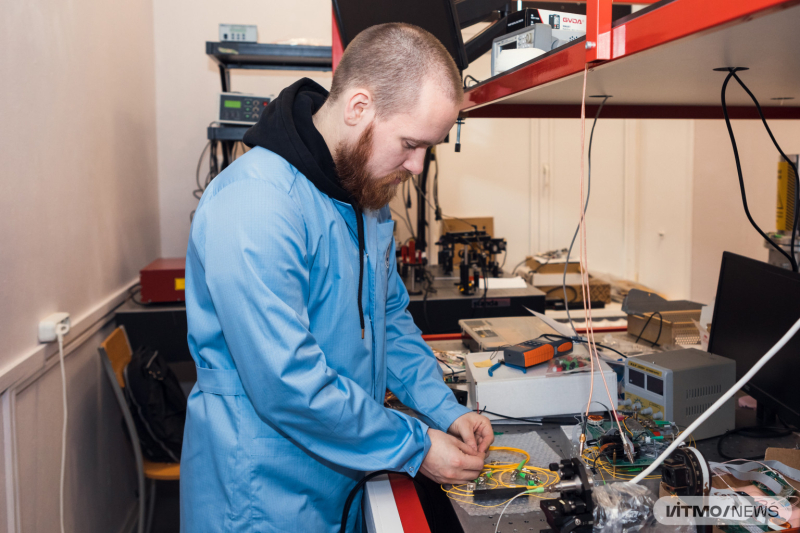
ITMO student, an employee of the Research and Educational Center for Photonics and Optoinformatics. Photo by Dmitry Grigoryev / ITMO.NEWS
Robotics
Systems Analysis and Control. The program offers two specializations:
- System Analysis and Control;
- Mechatronics and Robotics.
Over the course of training, students will acquire fundamental knowledge in system analysis, control, and robotics and will have the chance to work on research projects at the university’s laboratories. Graduates can become researchers or developers at leading universities, research centers, and high-tech companies (Sberbank Robotics Laboratory, Gazprom Neft, Severstal) or apply for PhD programs:
- Systems Analysis, Control and Information Processing, Statistics;
- Robots, Mechatronics, and Robotic Systems.
Read also:
Researcher Oleg Borisov on Being a PI and Creating Robot Dogs in Russia
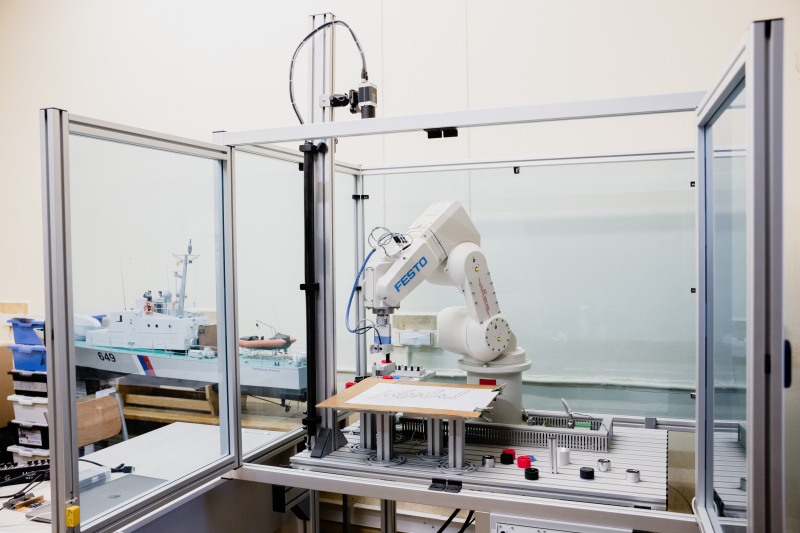
ITMO’s International Laboratory of Biomechatronics and Energy-Efficient Robotics. Credit: ITMO.NEWS
Chemistry
Infochemistry. The program will set students up with knowledge in chemistry, biotechnology, computer technologies, mathematics, and computer science, as well as teach them to apply machine learning, big data processing, and computer modeling to build a range of chemical and biological systems: novel adaptive materials, testing systems, functional foods, flexible electronics, or autonomous industrial robots.
Graduates of the program can work as chemists, programmers, engineers, or researchers at R&D departments of chemical, pharmaceutical, medical, and food enterprises. Among potential employers are Uralchem, Innova Plus, Vkusvill, BIOCAD, KUKA, Sintelli, and others. Students can also continue their academic careers and enroll into a PhD program of their choice:
- Physical Chemistry;
- Cheminformatics.
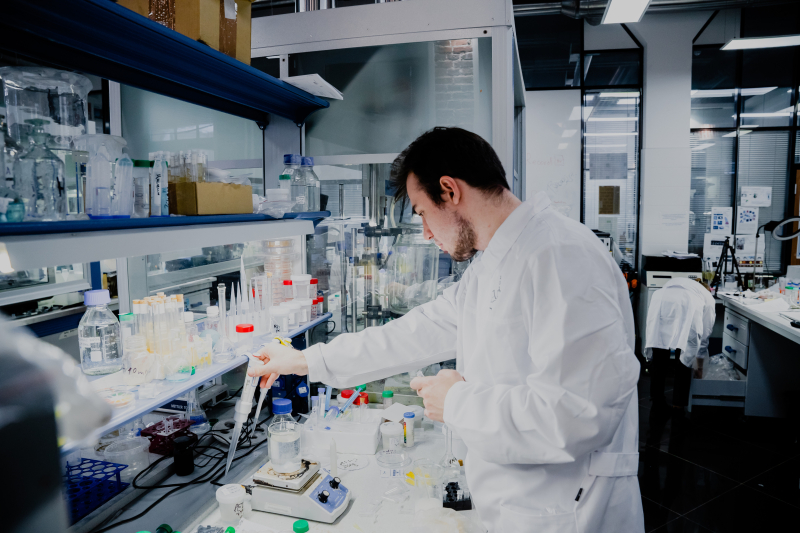
ITMO’s Infochemistry Scientific Center. Credit: ITMO.NEWS
Read also:
Chemistry and Artificial Intelligence. Within this program, students will find out how to tackle chemical, materials science, and biological challenges with the help of big data, artificial intelligence, and machine learning – whether to use the tech advances to manage their time at the laboratory or predict the properties of drug delivery systems or unstudied organic molecules and nanomaterials. Upon the completion of the program, graduates can opt to work at R&D departments of major pharmaceutical, chemical, oil and gas, engineering, or IT companies (BIOCAD, Pharm-Sintez, Gazprom Neft, Tatneft) or continue to work on scientific projects as part of their PhDs:
- Chemoinformatics;
- Physical Chemistry;
- Inorganic Chemistry,
Read also:
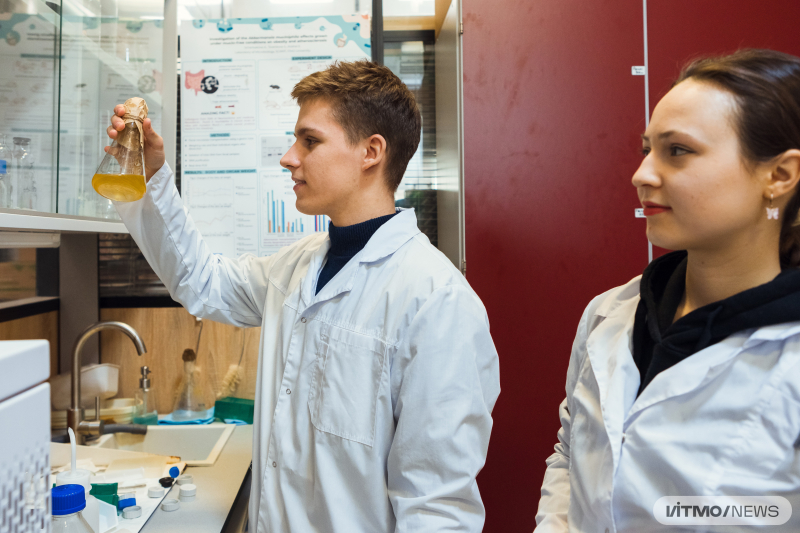
Participants of SCAMT Workshop Week at ITMO. Photo by Dmitry Grigoryev / ITMO.NEWS
How to apply
Just as with traditional Master’s programs, prospective students can enroll into a Master’s and PhD combined track via:
- Entrance exams;
- ITMO’s Portfolio contest;
- ITMO’s MegaContest;
- I Am a Professional contest;
- Congress of Young Scientists;
- A letter of recommendation from the head of the program, which needs to include a list of the student’s academic and scientific achievements, such as certificates of participation in conferences or contests, publications, research projects, etc., as well as their research interests and skills.
Some specializations offer other enrollment opportunities, as well. Thus, winners of the SCAMT Workshop Week competition get to be enrolled into the Chemistry and Artificial Intelligence Master’s programs with no entry testing, whereas the scholarship offered by ITMO’s School of Physics and Engineerings open doors to three educational programs. Explore all the opportunities for applicants here.
A track of study can be selected upon applying. At the moment, applications can be submitted to the programs of ITMO’s School of Physics and Engineering. The application must include a CV and a letter of motivation explaining why the student wants to join the track, who they want to work with, and what they’re planning to do at the university.



